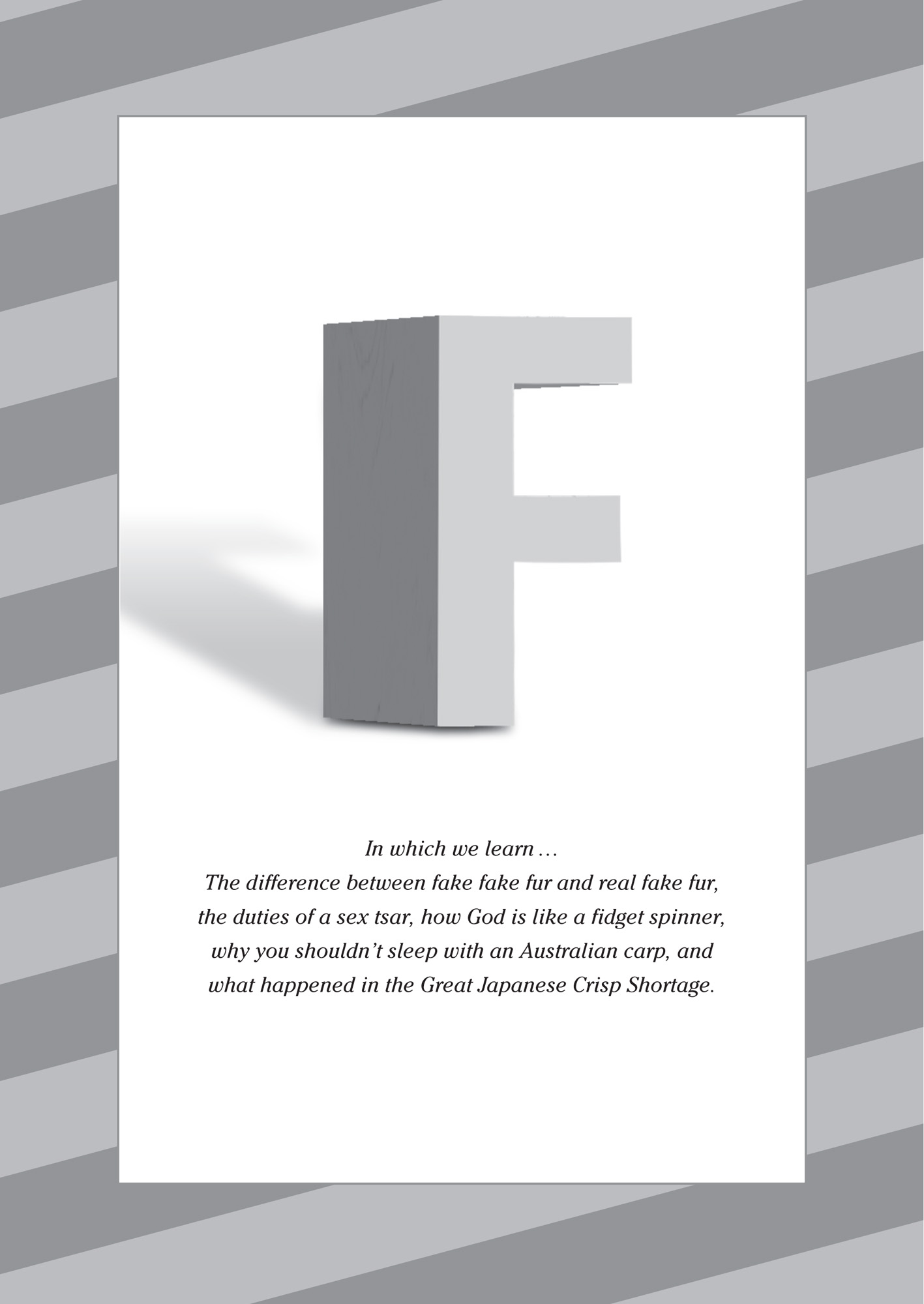

FACIAL RECOGNITION▶
A Ming-dynasty temple started using robots to ration toilet paper.
China is on a massive face-recognition drive. Some traffic junctions now spot jaywalkers and display their faces on giant video screens to embarrass them; companies use facial recognition to let customers access vending machines or make deposits; and this year a Beijing marathon installed scanners to make sure people didn’t take short cuts.
What’s more, the lavatories at Beijing’s 15th-century Temple of Heaven are scanning visitors’ faces to make sure they don’t take too much toilet paper. The change was instituted because the authorities had found that people were stealing huge lengths of toilet paper by stuffing it into backpacks. Customers now have to stare for three seconds at a machine outside the cubicle, which then spits out a single two-foot length of paper. If customers want more, they have to wait nine full minutes, then return. A temple spokesman told a local newspaper, ‘If we encounter guests who have diarrhoea or any other situation in which they urgently require toilet paper, then our staff on the ground will directly provide the toilet paper.’
The technology behind face-recognition software is good – it can even tell if you’ve had plastic surgery. But it’s not yet perfect. Last year, Wang Yuheng, a Chinese man with a photographic memory, defeated a face-recognition machine in a trial that involved matching women with their childhood photos. Wang’s skills are extremely rare: on a TV show he once successfully identified a specific glass of water out of 520 identical glasses of water.
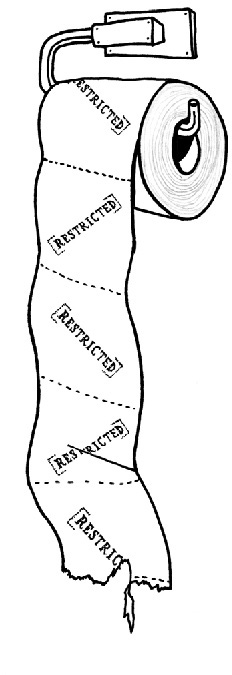
FAILURES▶
Sweden’s Museum of Failure was a huge success.
The museum, which opened in June in the small town of Helsingborg, contains over 70 exhibits, all of them commercial products which turned out to be disastrous failures. They include:
▶ A rejuvenating face mask that gave the wearer electric shocks
▶ The Bic for Her: a range of pens with floral patterns on them
▶ Heinz’s experimental green ketchup
▶ Coffee-flavoured Coca-Cola
▶ Colgate Lasagna, from the 1980s
▶ A cologne by Harley-Davidson called Hot Road
▶ The TwitterPeek, a handheld device whose sole purpose was to show Twitter messages, but that could display only the first 20 characters of any given Tweet
▶ Trump: The Game*
The museum also hosted ‘Nights of Failure’, such as a renowned classical pianist performing the early, ‘far from perfect’ versions of Beethoven’s 5th.
In press terms, the Museum of Failure was a massive success. Explaining the reason for the museum, director Samuel West said that he was ‘tired of all the success stories … failures never get any attention and they are so much more fascinating’. When he first registered the domain name for the website, West managed to misspell the word ‘museum’. He later said, ‘That could happen to anybody after a few beers.’ When asked why the museum was located in the town of Helsingborg, he said, ‘It’s where I live.’
FAKES▶
People in Britain have unwittingly been buying fake fake fur.
People who thought they’d been responsibly buying fake fur in British shops found that they had actually been purchasing fake fake fur – in other words, real fur. Sky News bought items labelled as artificial fur from multiple shops, and found the fibres came from such animals as rabbits, foxes, raccoons and cats. One father told the BBC, ‘You don’t want a raccoon pom-pom on your daughter’s head.’

As well as fake fake fur, this year saw fake fake food. People in Nigeria were warned to be careful after police seized 2.5 tonnes of artificial rice made of plastic. Similar stories cropped up elsewhere in Africa, and in India news reports said more than 30 people had been arrested for selling plastic rice and eggs. However, all this news of fake food was itself fake. There is such a thing as ‘plastic rice’, but it’s something that is used in shipping and it’s never found its way into the food chain. For one thing, so-called fake rice is more expensive than real rice.
Both the fake fur and the fake rice turned out to be fake fakes, but one real fake that made the news was an entire US embassy in Ghana. Late last year, news broke that for 10 years Ghana had had two US embassies – one real and one fake. The fake one, complete with a Stars and Stripes flag outside, was a money-making scam which sold people a range of false ID documents, fake visas and fraudulently obtained real visas. Possible giveaways included the fact that the ‘embassy’ was located in a shabby two-storey building with a corrugated iron roof, and that it was staffed by Turkish people pretending to be Americans. The organised crime ring that ran the embassy was so confident that it advertised it on billboards across West Africa. It also ran a fake Dutch embassy in case anyone fancied visiting the Netherlands.
FAKE NEWS
Andy: Fake news is about to get much worse.
Anna: How?
Andy: Researchers from the University of Washington have worked out how to make fake news videos. So in future, instead of seeing a made-up newspaper headline, you’ll see videos of people saying things they haven’t said. They’ve just made an artificial Obama.
Dan: A robot Obama? A Robama?
Andy: Well … nearly. They’ve taken footage of Obama and used software to make him say whatever they want. Essentially they’ve trained software to ‘watch’ videos of people speaking, then it learns the mouth shapes they make to go along with particular sounds, and they’ve taken his voice from previous words he’s said.
Dan: So it’s like one step up from wearing a party mask of Obama and impersonating him.
James: Well, it’s more like four normal steps up. Or one enormous step, I suppose.
Anna: Facebook has recently circulated ways to spot fake news. Have you guys read their ten-point checklist?
James: One: It’s on Facebook so it’s probably fake news.
Anna: Not far off. It’s all very obvious stuff. Points include: ‘Check the evidence’, ‘Check for unusual formatting’ – I’m not sure what that means – and then ‘Is this a joke?’
Dan: They should have said, ‘Would Obama really be talking about a secret trapdoor in the White House?’ Because that’s one I fell for. I saw a story about an escape route under the president’s desk which he could use to escape.
Anna: Sounds legit. What was wrong with that?
Dan: Well, it turned out to be from a site called ‘Not the White House’, and I just missed the ‘not’.
Anna: Everyone’s acting like fake news is a new thing. But in 1828 Andrew Jackson started a rumour that his presidential rival John Quincy Adams had procured an American prostitute for the Russian tsar to appease him. And that was almost 200 years ago. So it’s always been around.
James: A lot of today’s fake news came from a certain town in Macedonia called Veles. According to some reports, teenagers in this town were writing fake stories so they’d get more clicks to make advertising revenue. They’ve stopped doing that now, but they have found a new way to make money.
Dan: What’s that?
James: They broadcast long silent clips on Facebook that show a question like ‘What do you think of Donald Trump?’ and people click on the smiley face, or the angry face, or whatever, and those clicks turn into revenue. So they don’t have to go to the trouble of writing news, they can just put silence up there.
Dan: We should get in on that. Would save us having to write this book.
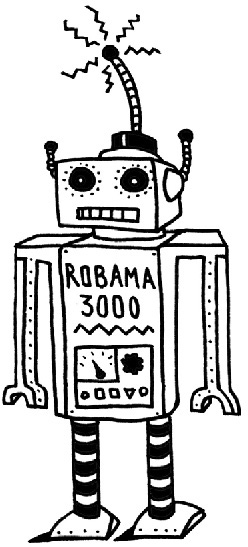
FARMING▶
Old MacDonald had a sex change, E-I-E-I-O
The British charity LEAF (Linking Environment And Farming), which promotes sustainable agriculture, has come up with a new, up-to-date version of ‘Old MacDonald’s Farm’. The first verse of the new version goes:
Young MacDonald had a farm
Yo, yo, yo, yo yo!
And on that farm she had a drone
Yo, yo, yo, yo, yo!
She flew it here, she flew it there
Checked the farm, from in the air
Young MacDonald had a farm
Whirr, whirr, whirr whirr, whirr!
In Kenya, Old MacDonald’s cows probably go ‘clunk clunk clunk’, as farmers there are using giant mechanical cows called anaerobic digesters, which work rather like bovine stomachs. They take plant matter in at one end and fire out manure from the other.
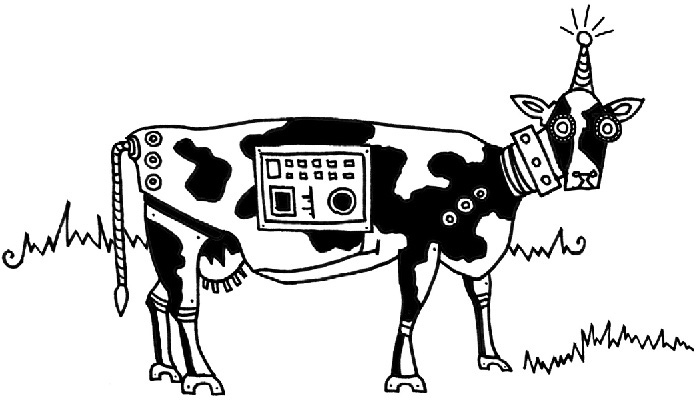
These at least are real farms, but it emerged this year that in Britain farms are not always what they seem. Waitrose’s ‘British ready meals’ range was found to include lamb from New Zealand farms. The supermarket explained that while the lamb may indeed have been from the other side of the world, the recipe was 100 per cent British. After a storm of outrage, the company caved and relabelled the range ‘Waitrose Classic’. A spokeswoman said, ‘We understand why confusion has arisen.’ Waitrose isn’t the only guilty one: last year Tesco launched a range from the non-existent ‘Nightingale, Redmere and Rosedene farms’. They were all invented by the supermarket, offering food that may sound British but in many cases has been grown abroad.
FAT LEONARD▶
US navy officers were bribed with prostitutes by a man called Fat Leonard.
Malaysian businessman Fat Leonard is so nicknamed because he weighs more than 350 pounds and is called Leonard. He bribed US officials with luxury goods, travel expenses and prostitutes in order to get them to direct their boats to his ports, where he could bill them for overpriced fuel, barges, water, sewage removal and tugs. Twenty-seven people have now been charged over the scandal, and this year one of them, Robert Gilbeau, became the first US navy admiral ever to be charged with a federal crime in connection with his military service.
It’s not the only waste of US army money this year. The Pentagon spent $28 million on forest camouflage uniforms for Afghan troops. Afghanistan has only 2.1 per cent tree cover.
FERTILITY▶
Spain now has a Minister for Sex.
The Spanish government tackled the country’s low fertility rate by employing a ‘sex tsar’. Edelmira Barreira Diz, the senator who has stepped into the newly created role, has been tasked with reversing the country’s declining population trend. She will be working with communities to help them understand the urgency of the problem and the need to procreate. This year, Spain registered more deaths than births for the first time since 1941.
In an attempt to solve its own underpopulation problem, the Swedish town of Övertorneå considered the idea of giving employees an hour a week to go and have state-subsidised sex. The politician who proposed it, Per-Erik Muskos, did acknowledge it would be hard to enforce the idea, and impossible to know if employees hadn’t used the time to take a walk in the country instead. The town’s council turned down the idea, saying, ‘If sexual congress is considered a valid activity, then other activities should be approved, such as cleaning.’
The French village of Auge also has a problem with low fertility. This year, a new baby was born there for the first time in 50 years, and it was such a rare occurrence that no one knew how to register the birth. A few days after having a baby in her garden – a location that pleased the father, who is a landscape gardener – mother Cyrielle Brugère took her newborn daughter to the town hall to get a birth certificate. This flummoxed the mayor, who admitted that she wasn’t sure how to fill in the form for a birth, and that the birth register had become so redundant that it was now used to register deaths. Happily, she successfully navigated her way through the paperwork, and said that she hoped news of the newborn would attract other families to the village.
FIDGET SPINNERS▶
Fidget spinners were used to explain the Holy Trinity.
For those not already in the know, a fidget spinner is a piece of plastic with three arms that you hold between your fingers and spin. You can either do tricks with it or just let it rotate for long periods of time. It’s been claimed, with little scientific evidence, that fidget spinners help children with ADHD to concentrate. What is certainly the case is that they quickly became the craze of the year. Teachers across the world were driven mad by them and many schools banned them.
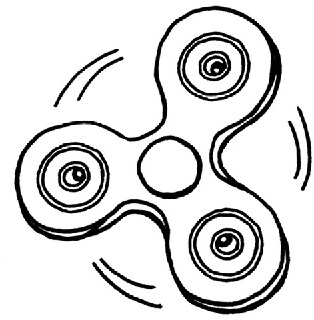
In May 2017, all top 25 toys on Amazon.co.uk were fidget spinners, and they accounted for 17 per cent of daily online toy sales. Overall, the fad generated somewhere in the region of half a billion dollars. However, they were almost completely unknown until this year, and their origins are uncertain. Many newspapers reported that they were invented in 1997 by a woman named Catherine Hettinger, that she was unable to afford the patent renewal fee of $400 in 2005, and that she therefore made no money from the craze. But the toy she invented is somewhat different, and it seems more likely that, as online magazine Inc. reported, the spinners evolved from the Torqbar, a high-end spinning office toy launched on GoFundMe.com in 2015. The popularity of fidget spinners in general was apparently boosted by New York teenagers Cooper Weiss and Allan Maman, who began printing their own versions of the toy on their school’s 3D printer at the end of 2016.
Soon everyone was in on the act. Trendy priests suggested that the three arms of the fidget spinners could be said to represent God the Father, the Son and the Holy Spirit, all spinning through heaven together … or something.* Celebrities as diverse as Kim Kardashian, Brazilian footballer Ronaldinho and rock band Arcade Fire marketed their own. NASA announced it would take some into space, to see how long they spin for. And during the UK general election, one newsagent in Devon sold red and blue fidget spinners alongside one another, thinking that their relative sales would reflect the final result. It didn’t quite work. Forty-seven per cent sold were Labour red and 43 per cent were Tory blue. Labour’s spin doctors were, of course, unable to replicate that result.
FIGHTS▶
For India vs China, see Bhutan; for journalist vs politician, see Body Slams; for man vs crocodile, see Dickheads, for Kuratas vs Eagle Prime, see Japan; for monk vs monk, see Jesus; for boxer vs ‘thunder master’, see Martial Arts; for McGregor vs Mayweather see Mayweather vs McGregor; for centurion vs tourist, see Rome, Ancient; for man vs shark, see Shark Attack; and for politicians vs water balloons, see Taiwan.
FINLAND▶
Finland started handing out free money.
The idea behind what is known as ‘Universal Basic Income’ is that if you give everyone in the country a certain amount of cash, it will reduce poverty, increase individual freedom, and also cut down a lot of admin in the welfare department. Basic income may well become necessary if robots take over all of our jobs, and it was presumably welcomed by Helsinki’s bus drivers: the city got a fleet of driverless buses this year.
Finland’s trial initially applied to unemployed people, and the deal is that they will keep receiving $600 a month even if they get a job. It seems to be working, with people on the scheme reporting lower levels of emotional (as well as financial) stress. Pierre Omidyar, the billionaire founder of eBay, also likes the concept; he is giving more than 26,000 people in Kenya a regular salary through the charity GiveDirectly. Not everyone thinks it’s a great idea, though: critics have suggested people may lose the motivation to work, and that the lack of personalisation of welfare may hurt the most needy. Last year, the people of Switzerland actually voted against receiving free money every month.
FIRST AID▶
Scientists discovered that you can save your life by slamming your body into a chair.
People can now perform the Heimlich manoeuvre on themselves. Doctors from London’s Royal Brompton Hospital wrote in the journal Thorax that if you start choking on food you can self-Heimlich by thrusting a hand into your abdomen or by pressing yourself sharply on to a chair. They tested both methods after swallowing pressure sensors to measure the effects.
Dr Henry Heimlich, the man who first popularised the technique in 1974, died in late 2016. He had campaigned against slapping people on the back when they were choking, saying that it was dangerous (it’s not). The American Red Cross thought his campaign against what he called ‘death blows’ was so dubious that it reinstated back slaps as its first recommended option, advising the Heimlich manoeuvre only if that didn’t work. Heimlich was so angry to be associated with back-slapping that he asked the organisation to remove his name from its training procedures. The American Red Cross therefore renamed the manoeuvre ‘abdominal thrusts’.
Heimlich developed his technique to deal with what was sometimes known as the ‘beefsteak disease’ (because it often involved people choking on large lumps of meat).* He and his team worked out the answer after two years of experiments that involved putting balloons down the throats of anaesthetised beagles. The last time he used his technique was at the age of 96, when he saved an 87-year-old woman who was sitting next to him at dinner in his retirement home. She later wrote to him, ‘God put me in this seat next to you,’ although she didn’t suggest why God had made her choke on her burger in the first place.
FISH*▶
Australia gave its carp herpes.
Ninety per cent of the fish in the Murray River are carp, which is an invasive species. They were introduced into Australia in the 1800s, and have out-competed native species ever since. They’re worth little to fishmongers, as due to Australia’s strict biosecurity laws they can’t be sold overseas, and so the government wants to kill as many as possible. According to the coordinator of the National Carp Control Plan, Matt Barwick (who one politician has dubbed ‘The Carpinator’) the best way to do this is to give them the fatal koi herpes virus, so Australia started testing the idea.
The move has worried scientists, especially, it seems, Professor Cock van Oosterhout of the University of East Anglia, who told the Daily Telegraph that it was an ‘irreversible high-risk proposal’. The Australian government claims its tests have shown that other species in the rivers can’t contract the virus, but van Oosterhout says the herpes could evolve to attack other animals.
Meanwhile in Sweden, Gothenburg’s anti-bomb team were called out to defuse a fishy package that turned out to be 10 kilos of frozen cod. ‘This could only happen in Gothenburg,’ one reporter wrote, but he’s wrong: in the past couple of years fish have been mistaken for bombs in both Hamburg and Manila. In 2013, an actual bomb was found in the belly of a squid in Guangdong, China.
FOOD AND DRINK▶
People in Japan started panic-buying crisps.
After a series of typhoons destroyed the country’s potato crop, people started stockpiling packets of crisps, for fear of running out. They were selling for £8 a bag – six times their normal price. This was not the year’s only food shortage:
▶ Courgettes in Europe. Bad weather in Spain – one of Europe’s main courgette producers – ruined the crop and led to prices quadrupling across the continent. The inclement conditions damaged other supermarket staples, too. Tesco temporarily banned their customers from buying more than three iceberg lettuces each, and Morrisons customers were limited to three heads of broccoli per trip.
▶ Milk in Qatar. One consequence of the diplomatic dispute between Qatar and neighbouring Saudi Arabia (see Qatar) has been the cutting of all dairy trading links between the two countries. In an attempt to counter the effects of this, one Qatari businessman flew 4,000 cows to his motherland in order to bring milk to the masses.
▶ Croissants in France. Falling milk yields led France to announce a butter shortage. Even more worryingly, this threatened to cause a croissant shortage (croissants are typically 25 per cent butter).
▶ Bacon in the USA. The Ohio Pork Council prompted alarm when it reported that US bacon reserves were at their lowest level since 1957. It later suggested that there was no need to panic-buy, as America still had 8.2 million kilos of pork belly reserves. The BBC summed up the overreaction with the headline ‘Aporkalypse No’ (for other aporkalypses, see Boar).
▶ Vanilla ice cream across the planet. Madagascar grows 80 per cent of the world’s vanilla, so when a cyclone in March destroyed huge numbers of vines, the price rocketed and vanilla ice cream disappeared from shelves. In September, vanilla was 20 per cent more expensive than silver, costing £530 a kilo to silver’s £440. In 2012, a kilo of vanilla cost just £23.
FOOTBALL▶
The England women’s team reached the semi-finals of Euro 2017, thanks to one player paying attention in a meeting.
With the game between England and Spain on a knife-edge, English defender Ellen White slipped, causing the ball to bounce off her leg and hit her arm. The referee gave a penalty for handball. However, another English player, Lucy Bronze, calmly explained to the referee that she’d got the rules wrong. Before the tournament, UEFA held meetings with the players to clarify the rules, and in one of those meetings UEFA said that if the ball deflects on to someone’s arm then it couldn’t be handball. The referee had forgotten this, but Bronze said, ‘I really paid attention [in those meetings]. I had my book out and everything, making sure if I was playing I knew exactly what was a yellow card and red card.’ The referee reversed her decision, and England went on to win the match, before proving themselves the equal of the English men’s team by getting hammered in the semi-finals.
In the European Women’s Under-17 Championships, FIFA turned to Abba for help in their penalty shoot-outs. There’s long been a set approach to shoot-outs: a coin toss to see which team will take the first penalty, and then five penalties each taken in the sequence Team A, then Team B, then Team A, then Team B again, and so on. The problem is that whichever team goes first tends to have a psychological advantage – indeed the statistics suggest that Team A will end up winning 60 per cent of the time. A new, theoretically fairer system has therefore been trialled, which, rather than going ABABABABAB, follows the tennis tie-break pattern of ABBAABBAAB. It’s hoped this will make penalties fairer, but the first time it was ever used things went pretty much as you would expect – the shoot-out was won by Germany.
FORTUNE COOKIES▶
The world’s leading fortune cookie writer retired after 30 years due to writer’s block.
Wonton Food Inc. is the largest supplier of fortune cookies in the world, producing over 4.5 million every day. For the last 30 years most of the fortunes have been written by one man, the Chief Fortune Writer, Donald Lau. He initially got the job because no one else in the company could speak good enough English.
Unfortunately, he is now stepping down as he can no longer think of what to write. ‘I used to write 100 a year,’ he told Time magazine, ‘but I’ve only written two or three a month over the past year.’
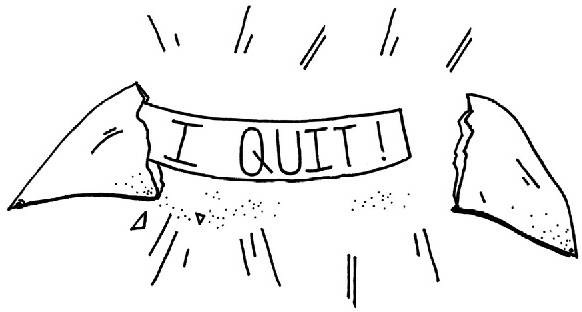
A fortune that Lau wrote back in 2005 led to the company being investigated. It seemed innocent enough: the encouraging words ‘All the preparation you’ve done will finally be paying off’, and a series of lucky numbers, 22, 28, 32, 33, 39, 40. The numbers turned out to be a bit too lucky, though: Lau had unwittingly predicted five out of six winning balls in that week’s lottery. One hundred and ten fortune-cookie readers who had taken his advice were able to claim their share of a huge payout. Sadly, Donald Lau was not one of the 110 winners.*
FRANCE▶
For the French artist who became a chicken, see Art; for why Paris will probably never lend Australia anything again, see Cock-Ups; for a birth in the death register, see Fertility; for croissant shortages, see Food and Drink; for grandmothers delivered to your door, see Old Age; for an international booze battle, see Wine.
FRENCH PRESIDENTIAL ELECTION▶
Emmanuel Macron won the presidency of France, narrowly beating ‘nobody at all’.
Here’s how the top five ranked:
▶ 5th place – Jean-Luc Mélenchon
The far-left candidate, Jean-Luc Mélenchon, won almost 20 per cent of the votes cast in the first round of the French presidential election. He proposed a top rate of tax of 100 per cent, addressed multiple rallies simultaneously through a hologram,* and campaigned via a computer game called Fiscal Kombat, where players picked up bankers and then shook them upside down so money came out of their pockets. One of his slogans was ‘Can’t Stenchon the Melénchon’, which a lot of French people didn’t understand. It turned out to be a play on Donald Trump’s line ‘Can’t Stump the Trump’, using the supposedly common English phrase ‘stench on’. English people didn’t understand it either.
▶ 4th place – François Fillon
François Fillon won just over 20 per cent of all votes cast. He was dogged by scandal throughout the campaign. His wife, who described herself as ‘very English’ despite being born and raised in Wales, was accused of falsifying documents related to her job – an allegedly fake job working as Fillon’s parliamentary assistant. Fillon then got into even more trouble for failing to declare nearly 50,000 euros’ worth of suits from a Paris tailor.
▶ 3rd place – Marine Le Pen
Marine Le Pen beat Fillon by just over 1 per cent, and so went into a run-off with the eventual winner, Emmanuel Macron. Until it became a drag on her campaign, she was president of the far-right National Front, founded by her father, Jean-Marie Le Pen, whose other claim to fame is that he popularised the duffel coat in France. The two fell out in 2014 when Jean-Marie’s Dobermann killed Marine’s Bengal cat.
▶ 2nd place – ennui
Marine Le Pen may technically have come second in the election, but some commentators pointed out that if you counted the four million abstentions, blank and spoiled votes, and the 25 per cent of the electorate who didn’t vote at all (unusually high for France) she actually came third. The apathy was probably due to the fact that neither of the leading candidates was particularly popular. The most common reason given for voting for Macron was to oppose Le Pen. Only 16 per cent said that they voted for him due to his policies.
▶ Winner – Emmanuel Macron
This was the first time Macron had won any kind of election, and his victory might have surprised some of his old teachers; he wasn’t a great student, recalling many years later that he was ‘terrible at maths and statistics’, despite later becoming Minister for the Economy. He was much better at literature, theatre, and finding a future wife – he met his partner, Brigitte, aged fifteen, when she was a teacher at his school. He was in the same class as her daughter and according to his biographer, when he began to act lovesick, Macron’s family believed he had a crush on the daughter.
FROGS▶
Scientists discovered a glow-in-the-dark frog.
The polka-dot tree frog (Hypsiboas punctatus) lives in Argentina and is the first naturally fluorescent amphibian ever seen. Scientists aren’t sure why it glows; they guess it could be to help the frog communicate.
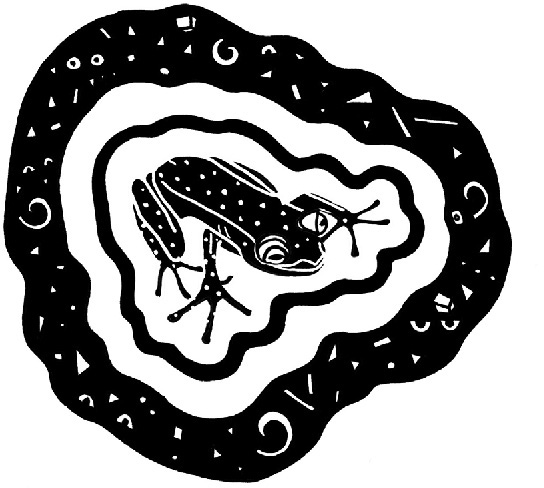
Elsewhere in South America, scientists in Ecuador identified a new species of glass frog, so named because many are partially transparent. Hyalinobatrachium yaku is so clear that you can see its heart beating through its chest, and its bladder is transparent, too. The new species was (sort of) discovered on Facebook. It was first caught in 1998, but was left in a glass jar and forgotten, until the scientist who first found it spotted photos his colleagues had posted of identical specimens they’d picked up. Scientists suggest that being see-through might help the frog hide from predators or save energy. Sadly, even though the frog was identified only this year, it is endangered already, because its habitat is threatened by oil drilling.
A third of the world’s amphibian species are either in decline or recently extinct. This is bad news not only for frogs but also for humans, as the animals can often have medical uses. It’s just been discovered, for instance, that some South Indian frogs may have life-saving snot (see also Nose, Picking Your). There’s a chemical in their bogeys which can kill some influenza viruses. This means they can’t catch the flu, and their snot could possibly be turned into medicine for humans.
FYRE FESTIVAL▶
The Fyre music festival was criticised for, among many other things, having no music.
Created by rapper Ja Rule and entrepreneur Billy McFarland, the Fyre Festival was meant to be the ultimate elite music-festival experience for rich millennials. Addressing staff before the festival opened, Ja Rule made a toast to ‘living like movie stars, partying like rock stars, and f***ing like porn stars’. Ticket holders also looked forward to sleeping in luxury tents and eating gourmet food on a private island in the Bahamas.
Instead, attendees reported sleeping in disaster-relief tents, eating cheese sandwiches from polystyrene boxes, fighting each other for the island’s inadequate supply of water and electricity, dodging packs of feral dogs, and crying for rescue via their social media channels.
Following the disaster, the festival organisers published an apology on their website saying, ‘We thought we were ready … but then everyone arrived.’

One group who didn’t arrive were 90s rockers Blink-182 who were booked to play but pulled out the day before the festival. Lead singer Matt Skiba credited himself with the disaster. ‘I consider myself a pagan and a witch,’ he said. ‘With every inch of my energy I wanted Fyre not to happen. I put all the electricity and energy in my body against that thing happening.’
In answer to a question on the refund application form sent out to all ticket holders, 81 per cent of the initial responders said despite all this, they would like to attend Fyre Festival 2018.